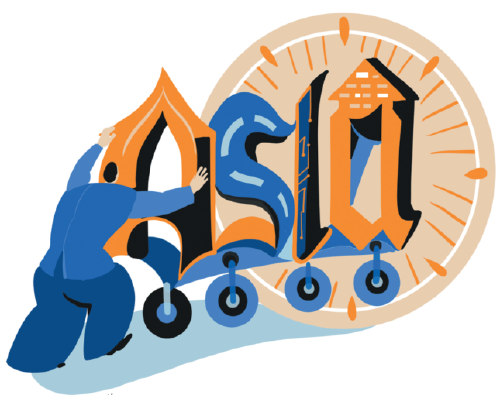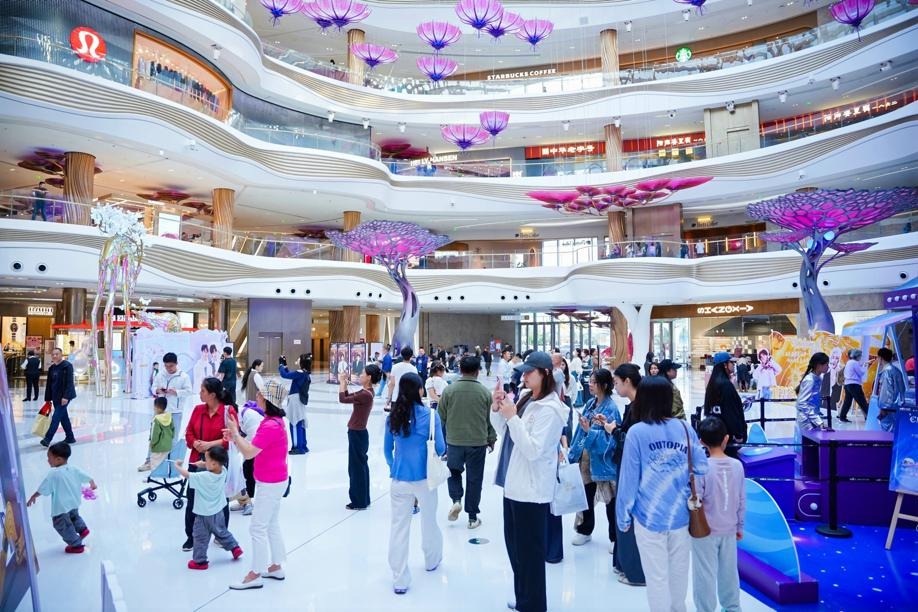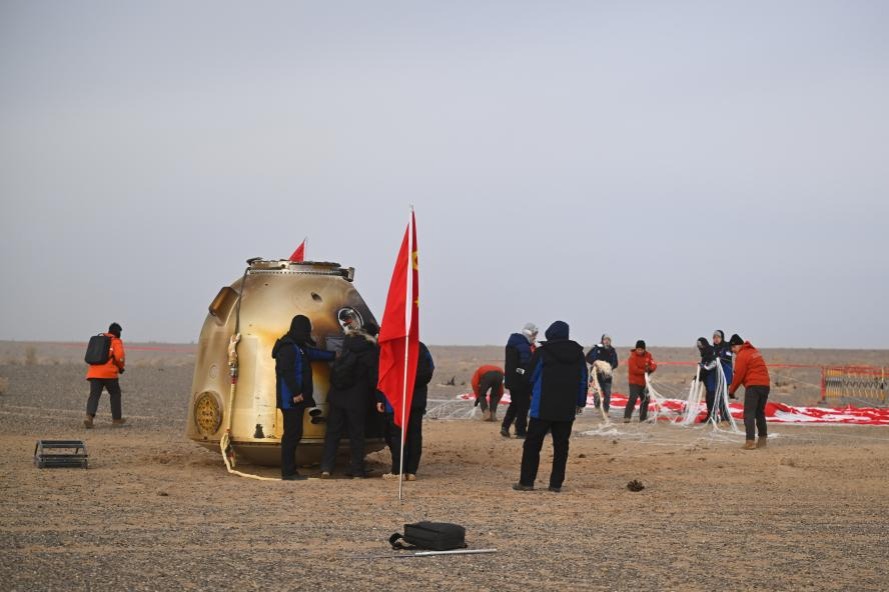The Asian way key to building peace


The 20th Shangri-La Dialogue, to be held at the Shangri-La Hotel in Singapore from June 2 to 4, is expected to promote peace and development in the Asia-Pacific region and beyond, considering that it will bring together defense ministers of many countries to discuss security issues in the Asia-Pacific region and work out the ways to maintain peace.
China once again sends a high-level delegation, led by State Councilor and Minister of National Defense Li Shangfu, to attend the dialogue. Along with attending the dialogue, Li will also pay a visit to Singapore from May 31 to June 4.
Amid the fast-changing international situation and increasingly complex major-country competition, peace and development have become the most valuable global public goods. As such, major countries need to assume global responsibilities with an open mind and uphold the hard-won peace and development.
One key factor behind Asia's remarkable development achievements in the past four decades is that the majority of Asian countries, including major powers in the region, are committed to maintaining peace, promoting development and interacting in an "Asian way", which emphasizes that differences and conflicts be managed and resolved through peaceful means. It is for these reasons that Asia has become the fastest-growing region in terms of economic and social development.
The Five Principles of Peaceful Coexistence and the "Bandung Spirit", which emerged nearly 70 years ago, have now become part of the collective wisdom of the people of Asia. And countries such as Singapore, Malaysia and Indonesia have been vigorously advocating "Asian values" and an independent development path.
At the 19th Shangri-La Dialogue in 2022, members of the Association of Southeast Asian Nations such as Indonesia and Malaysia reiterated their commitment to pursuing an independent and balanced foreign policy and "solving Asian problems in an Asian way". Mutual respect, mutual benefit, equality, consensus through consultation, and accommodation of the concerns of all parties involved are among the important principles of the "Asian way".
In stark contrast, the United States and NATO have been involved in a series of conflicts and humanitarian disasters in the Middle East and Europe over the past 40 years. The US is also trying to extend NATO to the Asia-Pacific, so it can interfere in the security affairs of the countries in the region and push forward its "encirclement" strategy against China. Needless to say the US' design will trigger conflicts in Asia, destabilizing the region and jeopardizing its development.
The US has been instigating conflicts between countries to maintain its global hegemony. Guided by the "America first" strategy, it has been trying to curb the development of other countries. It has also been coercing other countries to join what it calls the "democratic alliance" through the use of tariffs and other means to establish exclusive geopolitical "circles", exacerbating divisions and confrontations among countries in order to fulfill its own narrow goals.
In Europe, the US has used the Ukraine crisis to rally its allies and impose sanctions on Russia, even though the European countries are also suffering the consequences of the sanctions. In the Middle East, the US has forced its European allies to follow its foreign policy and impose sanctions on Iran, which has severely compromised the interests of the European countries. As a result, the United Kingdom, France and Germany have found different ways to bypass the US sanctions and establish non-dollar trade channels with Iran.
In the Asia-Pacific, the US has led the establishment of the Quad with Japan, Australia and India and the AUKUS security alliance with Australia and the UK. And Washington's "Indo-Pacific" Economic Framework for Prosperity excludes three of the 10 ASEAN member states, in a bid to create divisions within ASEAN. It is clear therefore that the US' actions are exacerbating confrontations and increasing the risk of a new Cold War, which could shatter global peace and harm global development.
On the other hand, this year marks the 10th anniversary of President Xi Jinping's proposal to help build a community with a shared future for mankind and, over the past decade, China has been reiterating the concept. China has also proposed the Global Development Initiative, Global Security Initiative and Global Civilization Initiative, which are complementary. Chinese civilization is secular, and the essence of a secular civilization is openness and inclusiveness, which is precisely what the world today needs to maintain peace and promote development.
In fact, as a responsible major country China has made significant achievements in promoting inclusive multilateralism.
China has always supported the idea of common, comprehensive, cooperative and sustainable security. It supports ASEAN's central role in regional cooperation, doesn't take sides on any issue, and advocates that countries use peaceful means to resolve their disputes and differences.
It has been promoting the development of the Belt and Road Initiative, which has expanded the scope for bilateral and regional economic cooperation for mutual benefit. And while the growth of BRICS and the Shanghai Cooperation Organization has helped improve global and regional governance, the Regional Comprehensive Economic Partnership agreement has injected new vitality into the region's economic development.
Despite the US' repeated attempts to smear China, the recent visits and discussions on cooperation between Chinese leaders and the leaders of many other countries indicate that China has become a crucial force safeguarding peace and development.
The author is an associate professor at the College of National Security of the PLA National Defense University. The views don't necessarily reflect those of China Daily.
If you have a specific expertise, or would like to share your thought about our stories, then send us your writings at opinion@chinadaily.com.cn, and comment@chinadaily.com.cn.































